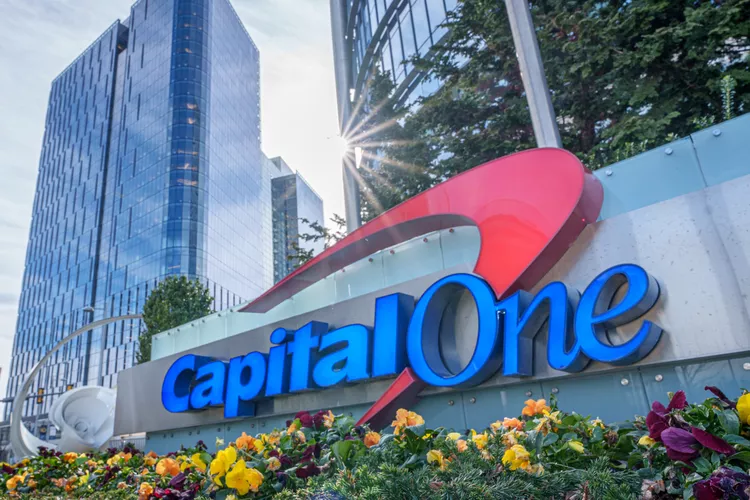In a strategic maneuver set to reshape the landscape of the American credit card industry, Capital One Financial Corp. has unveiled its plans to acquire Discover Financial Services in a monumental $35 billion, all-stock deal.
This bold move propels Capital One to the forefront, positioning it as the largest credit card company in the United States by loan volume, poised to challenge the dominance of Wall Street’s financial titans.
The agreement, announced amid fervent anticipation, outlines Capital One’s commitment to exchange 1.0192 of its own shares for each Discover share—a gesture reflecting a generous 26.6% premium over Discover’s closing price on February 16th. This premium underscores Capital One’s confidence in the synergistic potential of the merger and signals a vote of confidence in Discover’s market position and growth prospects.
With headquarters in McLean, Virginia, Capital One’s strategic acquisition of Discover is projected to usher in a new era of competition, amplifying the combined entity’s capabilities and market reach.
Anticipated to finalize in late 2024 or early 2025, pending regulatory and shareholder approvals from both organizations, this landmark transaction marks a pivotal moment in the evolution of the financial services sector.
Join us as we dissect the implications, opportunities, and challenges inherent in Capital One’s acquisition of Discover Financial Services—a union poised to redefine industry dynamics and set the stage for a transformative journey in the realm of credit card commerce.
The purchase of Discover ranks as the biggest merger globally this year, surpassing Synopsys Inc.’s roughly $34 billion acquisition of software developer Ansys Inc. announced in January.
The deal brings together two storied consumer-finance brands, a combination that will surpass longtime rivals JPMorgan Chase & Co. and Citigroup Inc. by US credit-card loan volume, according to data compiled by Bloomberg Intelligence.
It’s a “singular opportunity” to bring together two companies that can compete with the largest payment networks, said Capital One Chief Executive Officer Richard Fairbank in the statement.
Capital One holders will own about 60% of the combined company and Discover holders the remainder, according to the statement. The acquisition will generate pre-tax synergies of $2.7 billion.
“The main rationale is the fixed costs of technology that result in bigger being better,” said Jay Ritter, finance professor at the University of Florida. “This fact has been reshaping many industries for many years, and I see no reason to think that the trend towards fewer, but larger, firms will end.”
Prime Customers
Capital One Financial Corporation, renowned for its ubiquitous advertising campaigns featuring luminaries like Jennifer Garner and Samuel L. Jackson posing the ubiquitous question, “What’s in your wallet?” has long been synonymous with catering to the needs of subprime consumers. Under the stewardship of its 73-year-old CEO, Fairbank, the company has carved a niche in the market, serving individuals who regularly maintain balances on their credit cards.
However, amidst a landscape of evolving consumer preferences and industry dynamics, Capital One is charting a new course. Recent statements from Fairbank, including those made during an earnings call in January, underscore a strategic pivot towards attracting more premium clientele. Despite encountering challenges such as higher-than-expected net charge-offs due to delinquencies in credit-card and auto loans, Capital One remains steadfast in its pursuit of a more upscale customer base.
This shift in focus is exemplified by Capital One’s acquisition of Velocity Black, a digital concierge service tailored to affluent consumers. By venturing deeper into the luxury market, Capital One aims to compete with established players like American Express Co. and JPMorgan, leveraging its brand recognition and technological prowess to attract high-spending, loyal customers.
Conversely, Discover Financial Services has long prioritized prime customers with robust credit ratings, eschewing flashy sign-on bonuses and extravagant perks favored by its competitors. This approach has positioned Discover as a stalwart in the industry, appealing to discerning consumers seeking financial stability and reliability.
As Capital One and Discover embark on a journey towards consolidation, their respective strategies and market positioning offer intriguing insights into the evolving dynamics of the credit card industry. Join us as we delve into the nuances of these strategic maneuvers and explore their implications for both companies and the broader financial services landscape.
“As of the date this article was written, the author does not own any of the above securities.”
